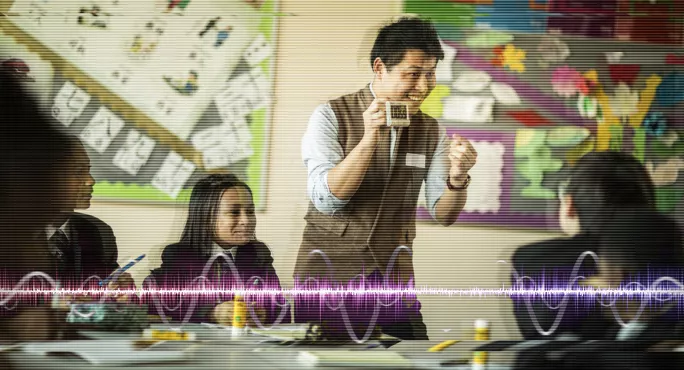When you think of studying a language what springs to mind? Perhaps the idea of testing out new-found linguistic skills somewhere further afield, or experiencing a culture in a way that was previously inaccessible? For many, it’s a subject that’s brimming with possibilities and excitement.
But, with a packed curriculum full of vocabulary and grammar, how can teachers ensure that the magic of foreign languages doesn’t fall by the wayside?
In the UK the number of students choosing to study these subjects is on the decline, and with some schools forced to drop language lessons during the pandemic, this has presented another bump in the road for departments.
But as schools continue to bounce back from the pandemic, is it possible that these subjects could offer learners another source of much needed cultural capital?
This is something seen to have been lacking in previous years, with off-site visits prohibited, and something often cited alongside plans to close attainment gaps and “level up”. If so, is there room in language lessons to properly allow students to get a flavour of these countries?
In this edition of the Tes podcast, senior editor Simon lock asks how schools can recapture the imagination of learners when it comes to modern foreign languages.
He speaks to Paul Burgin, subject leader for languages at Kings Langley School in Hertfordshire, and Keri Bosley, director of learning and achievement for languages at Crickhowell School in Wales, to find out what their respective schools have put in place.
Burgin has been teaching languages for 14 years, having joined exchange programmes and done sandwich years in Spain during his time as a student. For him, there are multiple benefits that come with learning a language.
MFL: ‘A packed curriculum’
“There’s no doubt about it, a modern foreign languages curriculum is packed,” says Burgin. “But the extra bits that you can give, the interest in music or fashion or whatever it is, that comes from you as the teacher.
“It’s down to the teacher to help your students to see that there’s a whole world out there speaking in Spanish, French, German, Italian. Because the more you do that, the more they gain access to it.”
For Bosley, there is far more to learning a language that mastering the words and phrases themselves. To get students to understand that comes down to the department and the school as a whole.
“It’s about pointing out how much languages really connect us and how understanding languages is key to understanding the world around us,” she explains.
“It’s to do with the ethos of the school and promoting an international ethos and an openness to learning; not just on the timetable, I think you have to look at things holistically.
“The key to successfully unlocking cultural capital has been extending the variety of culture clubs, language clubs, bringing the languages assistant into the process, and it all contributes towards planting the seeds and opening the world to them.”
How to bring culture to the classroom
For Burgin, it’s vital for the language department to showcase the variety of experiences that comes with these subjects right from the very beginning.
“Pre-Covid, we had an open evening every year,” explains Burgin. “One year we decided to turn two of the classrooms in the languages department into a café where we had tapas laid out.
“You’re saying to people, right from the very beginning, that it’s not just the nuts and bolts of learning grammar and vocabulary, but also it’s the things that go with it. It’s the food, it’s the music, it’s the culture of the country that you’re trying to bring into the classroom on a daily basis.”
Bosley also understands that bringing culture into the classroom is vital when it comes to getting young people to really engage with these subjects. Her department has joined a placement scheme in which a foreign language assistant is able to support students as they begin their journey of learning a language.
“She’s just playing such a huge and significant role,” Bosley explains. “It means that we’ve been able to do some really interesting extra things in our class. We’ve brought in some qigong [a Chinese exercise] calligraphy and a lovely tea ceremony that she puts on once a month.
“[The students have] been quite fascinated, especially when it’s coming from a Chinese national who can do it in a really authentic way.”
Listen to the interview in full via the Tes podcast:
This podcast is sponsored by the British Council. From resources like The Great Languages Challenge to our Language Assistants programme where speakers from 14 different countries can help students develop their linguistic and cross-cultural skills, the British Council is here to help you bring languages to life in the classroom.
Discover more and apply for a language assistant for the 2022-23 academic year before 2 May 2022 here.

